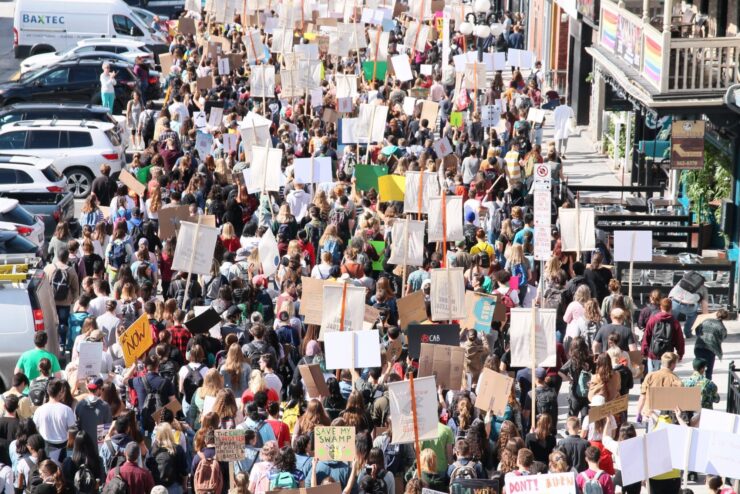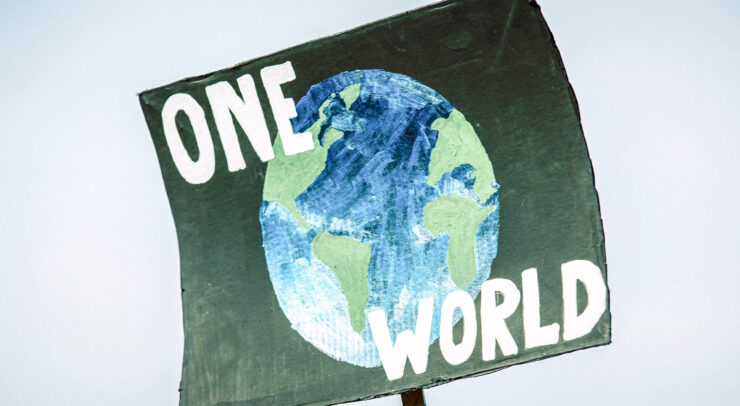The Canal is dying, and so are we.
Each winter, locals excitedly anticipate the Rideau Canal’s transformation into the world’s largest skating rink. Spanning over 7.8 kilometers and a UNESCO World Heritage Site, the canal is the pride of the National Capital.
On Feb. 25, the canal closed after its shortest season ever in its history. Lasting a mere 10 days, it is a devastating contrast to a skating season usually lasting from January to early March. Not to mention that the Rideau Canal Skateway didn’t open at all last year. It is the shattering of a decades-long tradition in the capital.
This year’s feeble attempt at reviving the skateway, as well as a significant drop in tourism and revenues, are an effective whistleblower for the growing effects of climate change. Last year was the hottest year on record. Winters in Ottawa are getting warmer and wetter as temperatures rise, causing the ice quality to plummet.
Year-long research projects have begun on the Rideau Canal in order to improve our knowledge on the challenges we’re up against. In 2022, the National Capital Commission partnered with Carleton University to address the impacts of climate change on the Canal.
These projects will continue adding to the already towering mountain of evidence we have underlining the urgency of the climate crisis.
I fear that the unusual temperatures we have been experiencing will become the new normal. Even worse, but hardly surprising, no one seems to care. Aside from brief disappointment upon learning about the canal’s closure, it seems that everyone is moving on with their lives. In 2002, former French president Jacques Chirac aptly put it: “Our house is burning down and we’re blind to it.”
Over 20 years later, Western society has taken Chirac’s words and positively stamped on them. Increased production violating human rights and the merciless extraction of limited natural resources are just two of the catastrophic consequences of our society’s ever-growing demand; they have accelerated climate change astronomically.
Even though it’s February, over 100 wildfires are currently smouldering in Western Canada. Smoke from the fires in Québec last summer also created heavy smog that choked citizens from Ottawa to New York, causing the air quality to plummet. Not to mention the floods in Nova Scotia, contributing to the wettest summer on record in the Maritimes, nor heat records being shattered in Alberta.
Even with the ruinous effects of climate change invading our daily lives, there appears to be general apathy and a lack of a sense of urgency. Our lifestyles, often involving rabid consumption of frivolous products and services, have only festered and grown.
Plans such as the 2030 Emissions Reductions Plan exist, but they aren’t being implemented fast enough; they are severely underfunded and don’t have clear objectives.
As a result, it seems highly unlikely that Canada will reach the 1.5-degree Paris Agreement global warming target.
We are actively creating a more volatile and wild climate. We’re already being forced to adapt, and it’s going to keep getting worse.
Some will argue that our individual acts won’t do anything to stop humanity from destroying the planet. Sure, billionaire celebrities are cruising in their gas-guzzling private jets while we drink from our paper straws, disintegrating themselves into our drinks.
However, we are on the brink of the point of no return. When I see garbage overflowing from the wrong bins in my university residence (entire bags of unsorted garbage stuffed into the recycling bin, with the compost bin standing nearly empty), I wonder if our society realizes that we each DO have an impact.
It’s the basic habits we build into our lifestyles that could generate long-lasting, positive change: we must make a more conscious effort to limit and sort our trash, watch our water usage, and try to reuse or fix products before throwing them away.
We must denounce unsustainable and damaging practices by celebrities and multinationals, and ensure they don’t become normalized. If governments and international organizations won’t listen, we must “cancel” them through the power of the Internet. We’re so much more influential than we think.
I implore you: don’t admit defeat yet.






